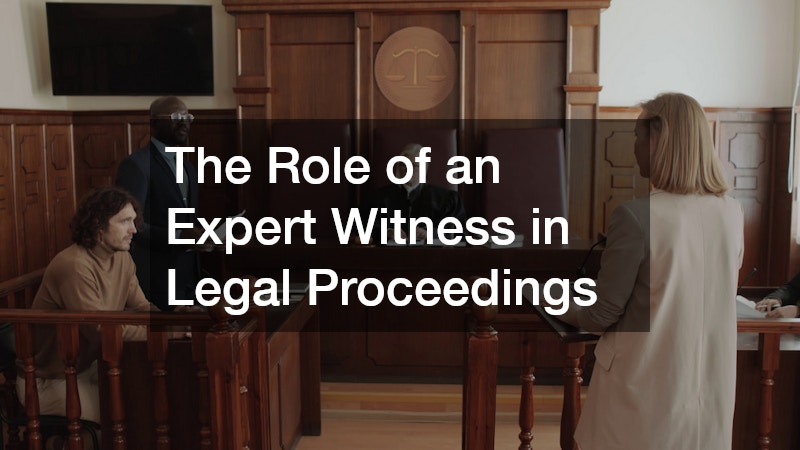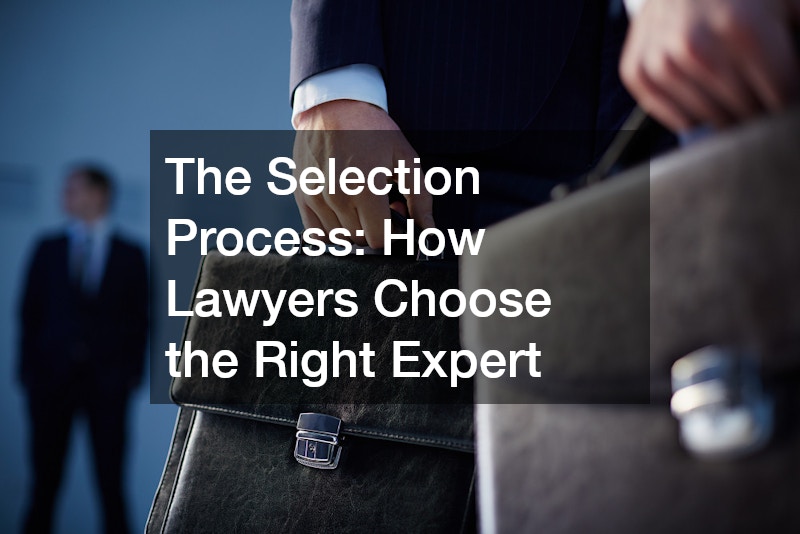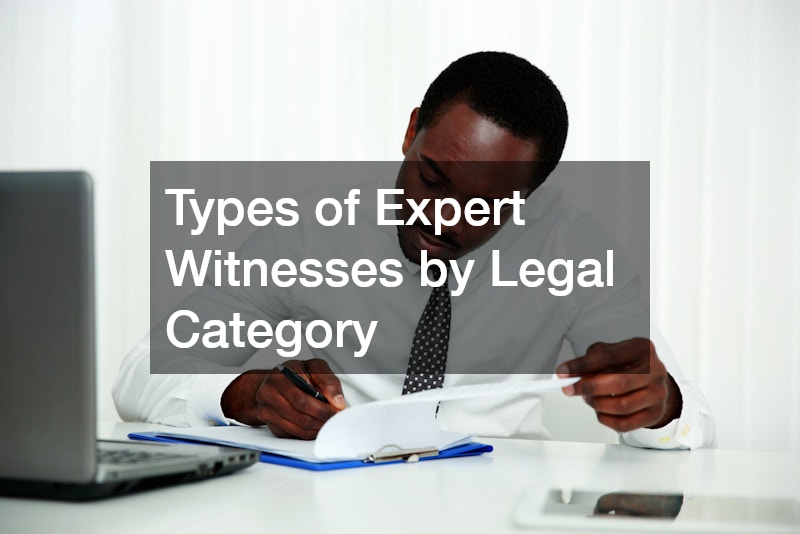
When you’re navigating a complex legal case—whether it involves family matters, business disputes, personal injury, or criminal defense—your lawyer may suggest bringing in outside help. One of the most powerful tools at their disposal is hiring an expert witness. These professionals can make or break a case, offering specialized knowledge that clarifies technical issues for judges and juries. But what exactly does hiring an expert witness entail? And why is it such a pivotal part of high-stakes litigation?
This in-depth guide explains everything you need to know when your lawyer brings up the idea. We’ll explore why expert witnesses are used, how they influence case outcomes, what types of cases benefit from their input, and how you can prepare yourself as a client. From real estate disputes and custody battles to forensic analysis and environmental hazards, hiring the right expert can elevate your case from uncertain to successful.
The Role of an Expert Witness in Legal Proceedings
An expert witness is someone with specialized education, experience, training, or skills in a particular field who is qualified to testify in court or offer professional opinions relevant to the case. Unlike fact witnesses—who simply recount what they saw or heard—expert witnesses interpret data, explain complex subjects, and provide insight that a judge or jury might otherwise misunderstand.
Your lawyer might recommend hiring an expert witness for several reasons:
- To break down complicated technical, scientific, financial, or medical concepts.
- To validate your claims with authoritative support.
- To rebut opposing testimony from the other party’s expert.
- To offer credibility and impartiality in a case that may otherwise seem emotionally charged or ambiguous.
Whether it’s a forensic accountant, medical doctor, engineer, or child psychologist, the goal is always the same: to help your case be understood clearly and convincingly.
Common Legal Scenarios That Require Expert Witnesses
There are numerous scenarios where hiring an expert witness is not just helpful but essential. In family law, a child psychologist might assess a custody situation, while in business litigation, a valuation expert might determine the worth of a company or lost income due to a breach of contract.
Estate planning lawyers may bring in appraisers, tax specialists, or even forensic accountants when disputes arise over trusts or inheritance distribution. In these cases, facts alone may not suffice—interpretation and professional insight are needed to untangle financial complexities.
Family attorneys may also rely on expert witnesses during divorces involving allegations of alcoholism or abuse. A licensed therapist or substance abuse counselor could provide assessments and recommendations for custody or visitation arrangements.
In immigration law, a visa lawyer may retain sociologists or economists to explain how certain policies affect individuals from specific regions or countries. These expert reports can support asylum applications, hardship waivers, or other special immigration considerations.
The Selection Process: How Lawyers Choose the Right Expert
Hiring an expert witness isn’t something your lawyer takes lightly. In fact, a considerable amount of time and research goes into finding the right person. The ideal expert not only has the right credentials and experience but can also communicate clearly, remain impartial, and stand up to cross-examination.
Lawyers often evaluate potential experts based on:
- Educational background and professional certifications.
- Published work in relevant journals or media.
- Prior experience testifying in court or writing expert reports.
- Communication skills, especially the ability to explain complex topics to non-specialists.
- Reputation in their field or with past clients.
If you’re hiring an expert for your case, your lawyer will likely present a few options and explain the pros and cons of each. You’ll want someone who adds credibility to your claim and won’t be easily discredited by the opposing side.
Cost Considerations When Hiring an Expert Witness
One of the first questions many clients ask is, “How much will this cost me?” The answer can vary significantly depending on the complexity of the case, the field of expertise, and how much time the expert will need to dedicate to the matter.
Most expert witnesses charge by the hour, with rates typically ranging from $200 to $800 or more. They may bill for time spent on:
- Reviewing case files and evidence.
- Writing expert reports.
- Consulting with your legal team.
- Preparing for trial.
- Attending depositions or testifying in court.
While this can significantly increase your legal expenses, the investment is often justified. The added weight that a credible expert brings to your argument can sway negotiations, avoid costly litigation, or even win a case outright.
Preparing for the Expert’s Involvement
Once you agree to hire an expert witness, your lawyer will coordinate the collaboration. The expert may request access to documents, photos, financial records, or medical files depending on the nature of the case. It’s essential that you be cooperative and transparent—your input will help the expert formulate their findings.
In some cases, the expert may visit the site of an incident, conduct testing, or interview involved parties. For example, in a property damage lawsuit involving mold remediation, the expert may need to inspect the affected home, review lab reports, and assess health risks associated with the exposure.
When the subject involves physical evidence, such as the effectiveness of gun safes in a home invasion claim, the expert may even offer a demonstrative exhibit to help the jury understand their analysis.
When the Other Side Hires an Expert Too
In adversarial litigation, it’s common for both sides to retain their own expert witnesses. In such instances, your expert will not only present their findings but will also need to refute or question the opposing expert’s conclusions.
This makes hiring an expert witness with courtroom experience especially important. They must be prepared to defend their methodologies and opinions under tough cross-examination. Your attorney will also coach your expert on what to expect during testimony and how to maintain professionalism under pressure.
Judges and juries are often persuaded by the clarity, confidence, and impartiality of expert witnesses. A well-spoken expert who presents clear and reasonable findings can often neutralize or overcome a less convincing opposing expert.
Types of Expert Witnesses by Legal Category
Family Law
In cases involving child custody, spousal support, or psychological evaluations, a family law lawyer might work with social workers, forensic psychologists, or addiction specialists. If the case involves allegations of alcoholism or abuse, expert testimony can be crucial in determining what’s in the best interest of the child.
Estate Disputes
Estate planning lawyers may turn to financial experts, forensic accountants, or real estate appraisers in will contests, disputes over inheritance, or trust management issues. When accusations of undue influence or fraud arise, a handwriting expert or cognitive specialist may be called to validate the legitimacy of a document or mental capacity of the testator.
Immigration Cases
For more complex immigration cases, a visa lawyer might rely on experts in international relations, economics, or psychology. For example, if a client is applying for asylum due to persecution in their home country, a political expert may testify about conditions in that region.
Civil and Business Litigation
In civil litigation involving contract disputes or business losses, lawyers often hire financial analysts or economists. If the case involves startups or tech firms, an expert connected to a venture capital firm might help assess business valuations, funding gaps, or investor relations issues.
Construction or Environmental Claims
If your legal issue involves moisture mitigation, asbestos exposure, or mold remediation, environmental engineers and industrial hygienists are typically brought in. These cases often rely heavily on scientific evidence and regulatory compliance, making expert guidance essential.
The Power of Persuasion: Expert Witness Impact in Court
An expert witness can have a transformative effect on your case. While the law sets the parameters of the dispute, an expert gives it context and clarity. Imagine a case where one party claims their home has significant mold damage, but the cause is disputed. Without an expert in mold remediation or building science, the jury may not understand whether poor ventilation, a construction defect, or external water damage caused the problem.
Similarly, if someone is injured due to a faulty product, an engineer can explain how the failure occurred and what safer designs could have been implemented. The expert doesn’t just give an opinion—they give the court a lens through which to view the facts.
Even in mediation or arbitration, expert witnesses can be powerful tools. Their reports and analysis often shape settlement negotiations and push parties toward resolution by laying out the risks and liabilities involved.
Ethical Considerations in Hiring an Expert Witness
It’s important to understand that an expert witness must remain objective. Their duty is to the truth, not to the party paying them. Ethical experts will not alter their findings to favor your case and may withdraw if they feel their analysis doesn’t support your claims.
This can be frustrating, but it’s also a testament to their credibility. In fact, a good expert’s neutrality makes their testimony even more persuasive. Courts and opposing attorneys look closely at bias, so selecting an expert who values integrity is critical.
Reputable experts also follow disclosure rules. If they’ve testified in prior cases, that information must usually be disclosed. Courts may exclude expert witnesses who appear biased, unqualified, or who fail to meet procedural requirements. Your lawyer will ensure all ethical and procedural guidelines are followed to maximize your expert’s impact.
Case Studies: When Expert Witnesses Make the Difference
Case #1: Family Custody and Alcoholism
A family law lawyer represented a mother accused by her ex-spouse of alcoholism and being unfit to care for their children. While the mother denied the allegations, the court needed more than her word. The lawyer hired a certified addiction counselor who conducted a full assessment, toxicology screening, and character reference analysis. The expert testified that the mother did not exhibit signs of dependency and was compliant with parenting responsibilities. The result? The mother retained custody.
Case #2: Environmental Exposure and Home Sale
In a property dispute involving asbestos and water damage, a buyer sued the seller for failing to disclose hazardous conditions. The plaintiff’s lawyer hired both an industrial hygienist and a structural engineer to assess the severity and source of the damage. Their expert reports were so compelling that the case settled before trial for nearly double the initial offer.
Case #3: Business Valuation in Startup Divorce
In a divorce involving startup founders, both spouses claimed they were entitled to shares of a jointly established business. A valuation expert with ties to a venture capital firm was retained to analyze company growth, founder contributions, and investor agreements. Their insight helped shape a fair buyout proposal, and the case was resolved amicably without prolonged litigation.
When You Might Not Need an Expert
Not every case requires an expert witness. For straightforward issues where facts are uncontested or easily explained, the added cost and complexity may not be justified. Your lawyer will consider:
- The importance of the issue in dispute.
- The need for specialized knowledge to understand it.
- The impact expert testimony could have on settlement or trial strategy.
If the legal question is purely procedural or interpretive—for example, in a simple immigration filing with no disputed facts—your visa lawyer might decide an expert is unnecessary. However, in most contested or high-value cases, hiring an expert witness can significantly strengthen your position.
When your attorney suggests hiring an expert witness, it’s a sign that your case involves complex or technical issues that require more than legal interpretation. From custody disputes and estate planning conflicts to environmental lawsuits and business valuations, expert witnesses bring clarity, authority, and credibility to your legal strategy.
Whether you’re working with estate planning lawyers, a family law lawyer, or a visa lawyer, expert testimony can play a pivotal role. They help make sense of everything from mold remediation and moisture mitigation to gun safes, asbestos, and the financial dynamics of a venture capital firm. These experts are not just hired guns—they are critical voices in helping the truth emerge in court.
Before proceeding, be sure to understand the costs, benefits, and expectations involved. With the right expert by your side, your case becomes not just stronger—but more understandable and compelling to those who must decide its outcome.






